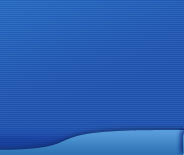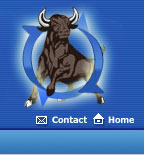|
 FOREX STRUCTURE FOREX STRUCTURE
In a universe with a single currency, there would be no foreign exchange market, no foreign exchange rates, no foreign exchange. But our world of mainly national currencies, the foreign exchange market plays the indispensable role of providing the essential machinery for making payments across borders, transferring funds and purchasing power from one currency to another, and determining that singularly important price, the exchange rate. Over the past twenty-five years the way the market has performed those tasks has changed enormously.
Since the early 1970s, with increasing internationalization of financial transactions, the foreign exchange market has been profoundly transformed, not only in size but in coverage and mode of operations. A basic change in the international monetary system from the fixed exchange rate "par value" requirements of Bretton Woods that existed until 1971 to the flexible legal structure of today, in which nations can choose to float their exchange rates or to follow other exchange rate regimes and practices of their choice.
An important wave of financial deregulation throughout the world with massive elimination of government controls and restrictions in neatly all countries, resulting in greater freedom for national and international financial transactions, and in greatly increased competition among financial institutions, both within and across national borders.
The foreign exchange market, commonly known as the FOREX market, is by far the largest and most liquid market in the world.
The foreign exchange market , is the backbone of all international capital transactions. It is the medium for how the world may view a nation's economic situation.
The FOREX is the largest financial market in the world. The New York Institute of Finance estimates the daily average to be more than $1.5 trillion. By the year 2008, more than $8.0 trillion will be traded daily.
Because of its size and reach, it is virtually impossible, even by government central banks to manipulate the FOREX market for any length of time.
Unlike the equity markets, no effective insider interference is possible.
The Interbank market is unique:
 Transactions occur directly with other Interbank participants Transactions occur directly with other Interbank participants
 Orders are processed immediately Orders are processed immediately
 Transaction participants are non-discretionary Transaction participants are non-discretionary
 Two-sided markets are offered to purchase and sell any currency at any time Two-sided markets are offered to purchase and sell any currency at any time
 Both short and long positions can easily be established Both short and long positions can easily be established
The FOREX market is open 24 hours a day, nearly 6 days a week.
The FOREX market usually offers high leverage, up to 200:1.
Frequently Asked Questions
 What is FOREX? What is FOREX?
The foreign exchange market is commonly known as the FOREX market. Today the FOREX market daily average is more than $1.5 trillion. By the year 2007, more than $8.0 trillion will be traded daily.
 Why Investing in FOREX? Why Investing in FOREX?
There are two reasons to buy and sell currencies. About 5% of daily turnover is from companies and governments that buy or sell products and services in a foreign country or must convert profits made in foreign currencies into their domestic currency. The other 95% is trading for profit, or speculation. FOREX is a unique opportunity to diversify investment portfolios.
 Where does the FOREX market operate? Where does the FOREX market operate?
The FOREX market is an action-based, decentralized international forum that allows major world currencies to seek their true value. The FX market is considered an Over The Counter (OTC) or 'interbank' market, due to the fact that transactions are conducted between two counterparts over the telephone or via an electronic network. Trading is not centralized on an exchange, as with the stock and futures markets.
 When Does the FOREX Market Operate? When Does the FOREX Market Operate?
The FOREX market is a true 24-hour market, operating nearly 6 days a week. The trading begins each day in Wellington, and moves around the globe as the business day begins in each financial center, first to Tokyo, London, and New York. Unlike any other financial market, investors can respond to currency fluctuations caused by economic, social and political events at the time they occur - day or night.
 What Are the Majors? What Are the Majors?
For speculators, the best trading opportunities are with the most commonly traded (and therefore most liquid) currencies, called "the Majors." Today, more than 85% of all daily transactions involve trading of the Majors, which include the US Dollar, Japanese Yen, Euro, British Pound, Swiss Franc, Canadian Dollar and Australian Dollar.
 What is the Pricing? What is the Pricing?
As with all financial products, FX quotes include a 'bid' and 'offer'. The 'bid' is the price at which a dealer is willing to buy (and clients can sell) the base currency for the counter currency. The 'ask' is the price at which dealers will sell (and clients can buy) the base currency for the counter currency.
 What is the Leverage? What is the Leverage?
The FOREX market offers high leverage, up to 200:1. Since this level of leverage enhances both profit opportunity and potential risk, a very disciplined approach to trading is required.
|
 Our products
Our products


 Our products
Our products

